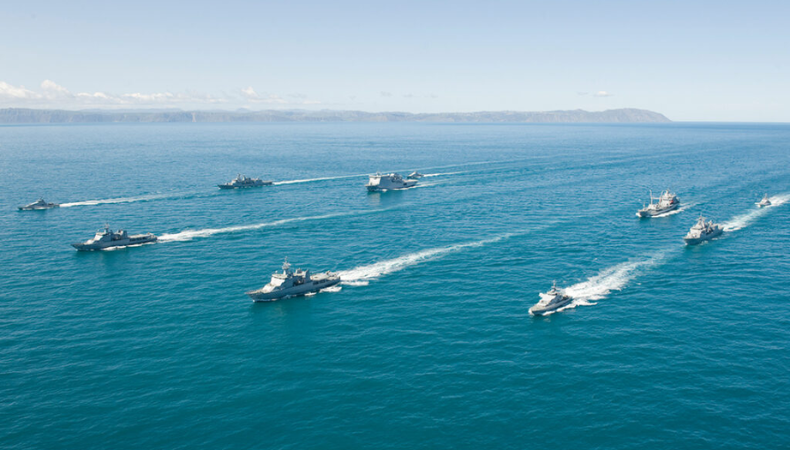Rising Tensions in the Middle East Threaten Global Shipping

Rising tensions and airstrikes in the Middle East jeopardize the safety of commercial vessels in the Red Sea, Gulf of Aden, Persian Gulf, and Gulf of Oman, therefore posing huge hazards to world trade. The volatility in the region has made maritime operations insecure, which causes shipping firms and crews to negotiate progressively dangerous locations.
Recommendation from Dryad Global
Strong warning against the passage of vessels linked to Israel in these hazardous locations provided by maritime security intelligence organization Dryad Global The advisory also cautions that apparent linkages to Israel—such as past or expected transit via Israeli ports or former or partial ownership or management of a vessel—could considerably increase the likelihood of being picked out. Moreover considered to be more risky when negotiating certain rivers are ships linked to NATO nations.
“This is a time of increased risk for commercial shipping in these vital marine corridors,” the Dryad Global analysis noted. “Vessels must exercise great care; those with Israeli affiliations should search alternative routes to avoid possible threats.”
Timeline of Intense Conflict
Though years of simmering conflict define the Middle East, current events have brought it to boiling point. On July 19, 2024, Yemeni Houthis fired a missile, launching the first drone attack from Yemen toward Tel Aviv. Israel reacted swiftly to this aggressive action, hitting Houthi targets in Yemen, mostly aimed at the important Red Sea port of Hodeidah.
The situation worsened on July 27 when a Hezbollah rocket attack on the Israeli-owned Golan Heights claimed the sad lives of twelve children and teenagers. Israel reacted right away to this terrible act of cruelty by attacking Hezbollah sites in Lebanon and along the border, further worsening the already strained situation.
Developing Conflict and Regional Reactives
On July 28, Turkish President Recep Tayyip Erdogan made controversial comments considered as threats for an assault on Israel. Erdogan’s comments aggravated the already delicate situation and attracted harsh condemnation, hence raising worry of a more general regional conflict. The Houthis also strongly warned Indian commercial vessels at the same time not to continue helping Israel or fear direct action. This threat has caused Indian vessels reassess their operations in the affected regions or rerouting and put them in a vulnerable posture.
On July 30 Israeli fighter planes targeted a prominent Hezbollah military official in southern Beirut. Significant casualties—including civilian deaths—from the airstrike improved relations between Israel and Hezbollah. On July 31, the next day, Hamas claimed that a missile attack had killed Ismail Haniyeh, its political head, in Tehran. Signing a concerning rise in the circumstances, this incident marked the second direct Israeli attack on Iranian land inside the year.
With reference to commercial shipping
According to Dryad Global, the sequence of these rising events most likely leads to reprisals against Israeli territory and assets in the next days. “It is assessed that these events will have a profound impact on commercial shipping, particularly through increased Houthi airstrike on merchant vessels in the Red Sea, Gulf of Aden, and Arabian Sea,” the assessment said. Moreover under danger are Persian Gulf and Gulf of Oman commerce vessels taken under control by the Iranian Revolutionary Guard Corps Navy (IRGCN).
Dryad Global advised ” Shipping companies must remain alert and think about adding more security measures”. “First priorities in these trying conditions should be cargo and crew member safety.”
More general implications for maritime security
The Middle Eastern situation gravely jeopardizes global trade given additional hazards for ships linked to Israel and NATO countries. Important maritime pathways of the Red Sea, Gulf of Aden, Persian Gulf, and Gulf of Oman define international trade; any disturbance in one of these regions might have significant financial consequences. Rising insurance prices, vessel rerouting, and delays in product delivery could seriously upset global supply networks.
Keep On Reading
Need for International Intervention
As the scenario keeps escalating, increasing calls for global involvement to de-escalate the conflict and ensure the safety of marine activities. Maritime organizations, shipping companies, and international authorities are advocating diplomatic attempts to tackle the basic causes of the issue and stop more escalation.
A representative for the International Maritime Organization (IMO) advised the international community to act quickly to reduce the hazards and guarantee the safety of marine activities in these important areas. “Failure to do thus could cause major economic damage and major disturbances to world trade.”
Finish
Major risks for vessels linked to Israel and NATO countries, the Middle Eastern conflict has created a very dangerous environment for world trade. As tensions continue rising, the safety of commercial vessels in the region remains a main concern. Shipping companies have to be quite cautious, follow extra security procedures, and be aware of the most recent happenings if they are to cross these dangerous seas safely. The prompt involvement of the international community will help to de-escalate the issue and protect the vital maritime routes facilitating world trade.








